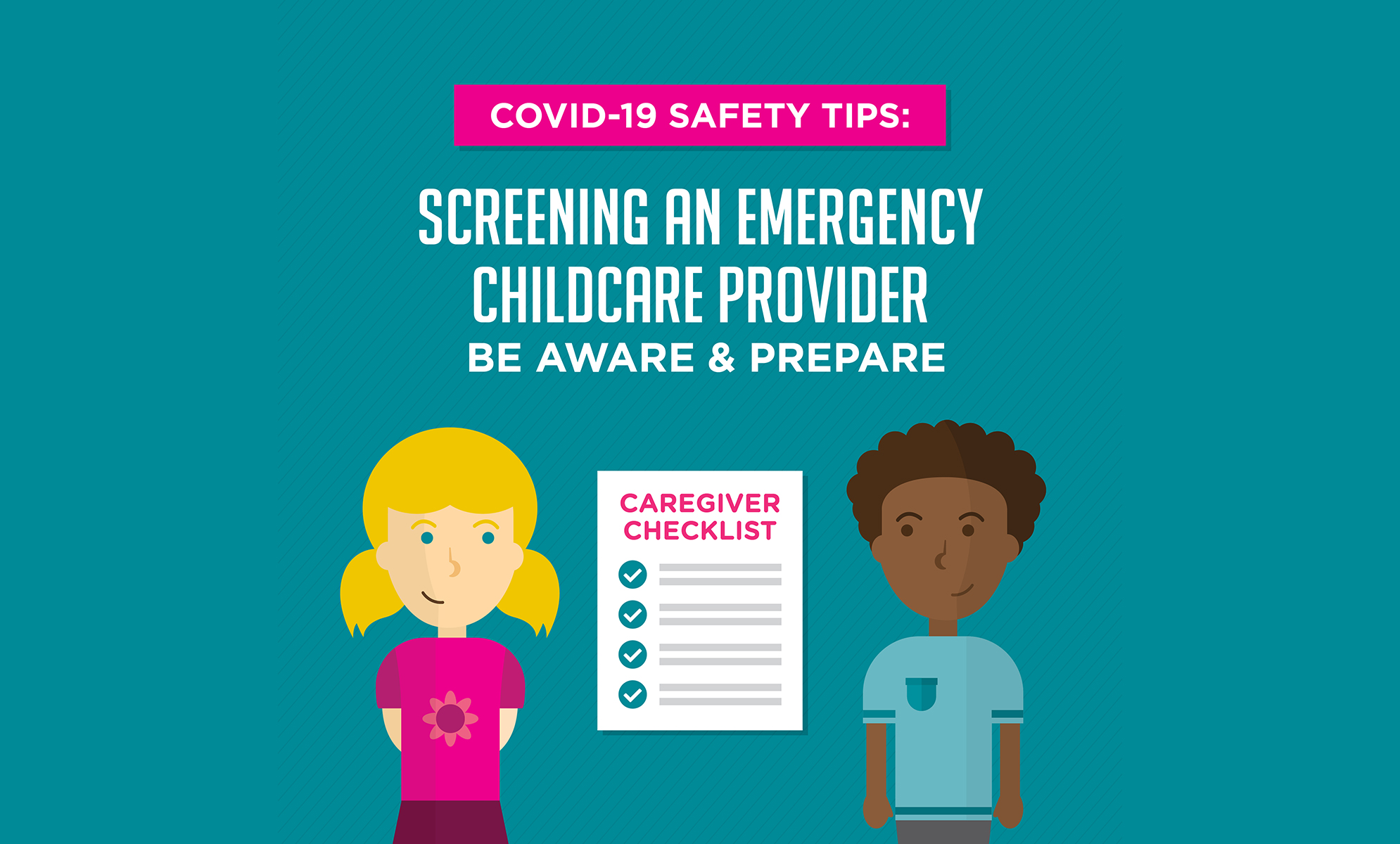While children are usually taught the dangers of strangers, sadly some 90% of child sexual abuse is committed by a person whom the child and his or her family know. Often, children or youth who have endured sexual abuse feel shame and are too traumatized to report their abuser or to even tell a trusted adult. All entities and individuals – both formal and informal – that provide childcare have one characteristic in common: they provide an opportunity for access to children. For that reason, childcare providers have a clear responsibility to implement safeguards to prevent child predators from gaining access. And, parents must be educated about possible dangers and armed with information to ask the right questions about safety.
With COVID-19 forcing schools and many childcare facilities to close, parents who are not able to work from home are faced with finding childcare options – and fast. That’s why our team of safety experts at Lauren’s Kids has compiled the following list of questions as a guide for parents and caregivers to ask potential emergency childcare providers.
Questions to Ask
- What are the caregiver’s educational or professional qualifications? Do they have any experience?
- Has the caregiver been background checked?
- Note: If you’re seeking emergency childcare during the COVID-19 crisis, they may not have any qualifications other than being a caring neighbor or friend. A formal background check may not have been completed. In this case, be sure to ask for references and for their full name and birthdate so you can do a Google search and check against the sex offender registry. Ask if they have a history of instances or allegations of abuse or neglect, or any violent crimes.
- If your child has special needs, how will the caregiver accommodate them?
- How will your child’s privacy be respected while in their care? i.e. – bathroom policy, photo/video policy, etc.
- Does the caregiver have a digital device policy for children in their care, and adults in the care setting? If not, request the following:
- No photos or video of your child should be taken or shared without your consent.
- No phones or digital devices should be allowed in the bathroom or changing area.
- Children should be supervised if using digital devices.
- Will your child be alone with the caregiver or with other children or adults? If possible, ensure your child will not be alone with the caregiver.
- What steps does the caregiver take to ensure the health and safety of your child and any other children in their care?
- Will there be other adults in the home or care setting? If so, who are they? Important to have their information to check background, references, etc. as well.
- Will older children be present? If so, what are the rules for interaction?
- Will your child ever be unsupervised?
- Will your child have access to a pool or other body of water?
- Is there a specific room dedicated to diaper changes?
- Is caregiver regularly washing their hands?
- How and how often are surfaces sanitized?
- What is their policy on sick children?
- Ensure the caregiver is aware that you have a “no secrets” policy – your child should not be asked to keep secrets while within the care of this adult.
- Is there a daily structured routine? If so, what is it?
- Does or will the caregiver provide a daily report to parents/guardians about daily activities, eating habits, and behavior?
- How do you discipline children when you see tantrums, pushing, fighting, and arguments? It’s important to find out which discipline methods are used as well as which ones are prohibited.
- What would you do if my baby or child cried inconsolably? The provider should try a series of calming techniques and also ask you what would calm your child best.
- What are your security and emergency policies? How will my child be checked in and out each day? What would you do if my child fell? Do you practice fire drills? How would you handle an emergency situation (earthquake, tornado, national security threat)?
After you pick your child up each day, be sure to have a daily debrief with them – away from the caregiver so a child feels they can answer freely. Consider asking the following:
- How did you feel today?
- What did you do today?
- Did anything that happened today make you feel uncomfortable? Did anyone ask you to keep an unsafe secret?
- Safety Tip: SAFE secrets are ones that make you feel happy, excited, glad, and do not involve safety – like a surprise birthday party or a secret handshake with a friend. UNSAFE secrets are those that make you feel uncomfortable, icky, or not quite right and that you are told NEVER to tell. An adult should never ask a child to keep a secret and never tell.
- Is there anything that happened today that you wish wouldn’t happen again?
- What did you really like about today?
Want to learn more about ways to have safety conversations with your child? Check out our Resources for Safer, Smarter Families here.

